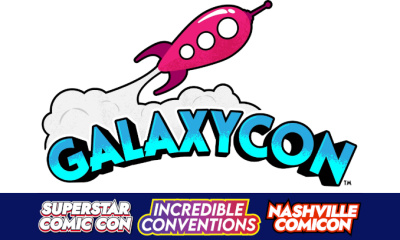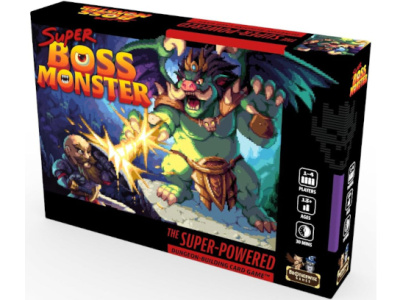I think that the idea that the OGL/D20 market has 'failed' has been gaining some strength for the past six-nine months, and I feel the need to shout from the mountaintop 'don't give up hope! Things are only just beginning!'
I think that the Open Gaming period from Day 0 to today has been a mixed bag on a tactical level; some great products have been produced and a mass of really, really bad products have been produced. A lot of people made a little bit of money, a handful made a lot of money, and a sizable group feels like they broke even or maybe lost a bit and are quite bitter about the experience. On a strategic level, I think the period has outperformed expectations, but that's a topic for a different essay.
The viewpoint I have is that the OGL/D20 project 'pricked' a balloon of creative frustration that had been building since the '70s. That frustration was the sum total of all the DMs who read published D&D products and thought, 'I could do better than that'. The OGL/D20 combo let them try and see for themselves if they could. It turns out that the number of people willing to take a creative and financial risk using the D&D rules is a heck of a lot bigger than the number of people who were willing to try and bootstrap off a brand new game system (no real surprise). What was surprising to me was how good many of those people actually were at doing content creation.
I would estimate that the number of people now working professionally (full time), professionally (always get paid), and semi-professionally (sometimes get paid) is higher (in all three categories) than it has ever been in the tabletop RPG category. Of course, the number of people who tried and failed dwarfs those who tried and succeeded (no pun intended); and the number of people who were working in the field last year was probably bigger than it will be next year, due to the winnowing process now underway in the channel. Still, when we consider the net influx of new talent, the result has to be a positive for the industry.
Now I think the stage is set for 'Phase II':
* A licensing framework now understood well enough that even the very risk adverse can start to feel comfortable that the framework is stable and usable.
* A large pool of experienced commercial publishers/designers, who have been through the crucible of fan knee-jerk criticism and perceived insanities in the economics of the channel.
* Most of the 'get it out of my system' products have been done, and won't be done again - the pressure is out of the 'frustration bubble'.
* Retailers are now aware of, and understand, the 'd20 System' trademark and what it means in terms of interest from their customers.
* Customers who have been exposed to a wide range of product quality and who have begun to become educated about how to discriminate between similar products from different publishers effectively.
'Phase II' will also be driven by the continued success of D&D 3e (and the notable, though quiet success of Star Wars 2E). My 'ear to the ground' sources tell me that the 'whisper number' of units sold for 3E PHBs exceeded 100,000 units in 2002. That's a tremendous success, and indicates that the overall 'base' of the d20 hobby market continues to expand. While I still remain critical of WotC's failure to implement and drive an acquisition strategy in the mass market, they are still doing a good job of supporting the new player, or the newly-upgrading player into core D&D, and that's good for all d20 publishers.
In 'Phase II', I expect to see the following trends emerge:
* Small, but expensive lines, focused around a brand that isn't likely to expand outside the tabletop RPG niche. These products will come from established publishers, or new publishers with established executives. These lines will consist of a series of hardback, 300+ page books priced at $40, and will probably include between 3 and 6 volumes, plus potential accessories like DM screens, map books, and possibly standalone adventures. These lines will basically represent the creative output of a core design team integrating a designer, a developer/editor, an art director/illustrator, a marketer, and some business management over an 18 month period. Some publishers will try to extend these lines, but virtually all will fail.
* Key (very profitable) releases from publishers that are substantially better sellers than the other products from that publisher, representing an accidental 'perfect storm' of idea, content, design, and art. Reproducing these 'perfect storms' will be the holy grail for many publishers in 'Phase II', but designer hubris, lack of marketing insight, bad luck, competitive pressures and economic realities will make it unusual for any given publisher to succeed more than once or twice a year at doing so.
grow up to become de facto industry standards.
* A major barrier to entry being erected by the distributors which will help retailers separate the wheat from the chaff. Getting Alliance, ACD and Centurion to carry your product will be a big first step. Getting them to 'recommend' it to retailers will be much, much harder - but retailers as a group will start to realize the profit benefit to them of stocking 'recommended' products, and staying away from those that aren't recommended.
* As a partial response to that barrier being erected by the distributors, and other factors in the channel, a number of publishers will 'go direct', creating a side-channel bypassing distributors and selling directly to retail. A profitable and material number of d20 products will be sold through these side-channels, but they'll only be sold to a limited number of stores, and the number of such products offered for sale will remain quite small compared to the total offered by distributors.
* Publishers who can't get into distribution and can't forge a side-channel deal will either give up in frustration, or go to PDF sales. The PDF sales channel will become the 'minor leagues' of the tabletop RPG publishing world - a place for people to hone their skills, get their preconceived notions shattered, and experiment with form and function in a mostly harmless way. The occasional success story that comes out of the PDF channel will serve as the impetus to the other participants to keep plugging away.







